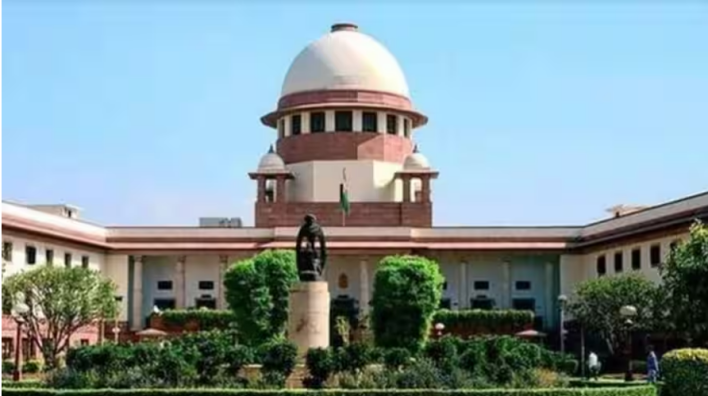The burning Kashmir issue should be seen as an international armed conflict and a matter of illegal occupation, annexation and settler colonialism and all unilateral actions by the Indian government or court verdict to legitimize them have no legal standing in the eyes of the UN, the world community and international law.
According to Kashmir Media Service, this was discussed during the 22nd meeting of the Institute of Policy Studies’ Working Group on Kashmir (IPS-WGK), a body of experts and opinion leaders on Kashmir affairs, under the title ‘Article 370 in the Indian Supreme Court: Arguments, Outcomes & the Way Forward.’
The hybrid session, chaired by Khalid Rahman, chairman IPS, was addressed by Ambassador (Retd) Syed Abrar Hussain, vice chairman IPS, Sheikh Abdul Mateen, special representative of All Parties Hurriyat Conference (APHC) chairman Masarrat Alam Bhat, Dr Asma Shakir Khawaja, executive director, Centre of International Studies (CISS), Muzaffarabad, AJK, Iftikhar Gillani, senior Kashmiri journalist based in Ankara, Ambassador (Retd) Ishtiaq Hussain Andrabi, Advocate Imran Shafiq, international law expert, Advocate Nasir Qadri, executive director, Legal Forum for Kashmir (LFK), Dr Sheikh Waleed Rasool, Kashmiri academician and activist, Dr Khurram Abbas, director, India Study Centre, Institute of Strategic Studies, Islamabad (ISSI), Reema Shoukat, communication strategist, Institute of Regional Studies (IRS), among others, and moderated by Farzana Yaqoob, former AJK minister.
The experts were of the view that the Indian attempts to change the status of Indian Illegally Occupied Jammu and Kashmir (IIOJK) do not alter the international recognition of the issue and validity of UN resolutions, especially Resolution 47, which calls on India “to hold a plebiscite as soon as possible on the question of the accession” of Jammu & Kashmir to India or Pakistan. Thus, international resolutions remain fundamental in strengthening the case for Pakistan and Kashmiris.
The Indian Supreme Court last month reserved its judgment on petitions challenging the revocation, through an act of parliament on August 5, 2019, of Articles 35-A and 370 of the Indian constitution, which accorded Jammu & Kashmir a special autonomous status.
In this backdrop, Khalid Rahman stressed the need to remain consistent and innovative in advocacy. He underscored that the Kashmir cause needs to be echoed through robust and proactive advocacy tailored to the changing political and international environment.
Abrar Hussain said although the verdict was reserved after 16 hearings, the statements, particularly those of the Indian chief justice, imply the presumptions that Kashmir’s sovereignty was entirely relinquished at the time of ‘accession’ in 1947. Presenting the analysis of all 16 hearings of the Indian Supreme Court, Nasir Qadri underscored that the proceedings lack any discussion on key aspects of Kashmir’s sovereignty and accession. He said there is little room for a diplomatic solution to the conflict as India has already employed hybrid war tactics. He stressed that as one of the three major parties to the conflict Pakistan should amplify its moral, legal and material support the struggle.
Imran Shafiq said that stakeholders in the issue are Pakistan, India, Kashmiris, and the international community. While the court proceedings were held within the parameters set by the Indian constitution, Pakistan and the international community view the Kashmir issue in light of UN resolutions.
He emphasized that UN resolutions, such as Resolution 48, Resolution 47, the Simla Agreement, and others, are the foundational documents on the Kashmir issue that have strengthened the case for Pakistan and Kashmiris. He said that, despite Indian presumptions and attempts to legitimize its hegemony, the process is only symbolic, with no actual authority or legal standing for the UN.
The participants observed that there was no written submission or discussion of the true nature of the J&K dispute and its international character in the court proceedings. He underscored that India is trying to propagate through its presumptions that the Kashmir cause is unachievable and that the international community is not listening to the Kashmiris and Pakistan. Whatever is the outcome of the verdict, it is expected to have major consequences for the people of Kashmir and the Kashmir issue itself. Therefore, Pakistan must prepare a counter-strategy on war footing.—KMS










